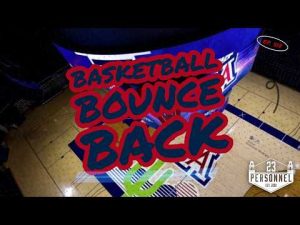
2024 Arizona Wildcats Preview
By Brett Berry from Wildcat Radio 2.0
It has been a long time since Arizona Football has seen enough on-field success to warrant real interest from a bigger and more prestigious program to come sniffing around Tucson in search of their next head coach. A long, long time.
Sure, Rich Rodriguez flirted with South Carolina after some early success in Tucson, but more often than not it has been the Arizona athletic department that has been the one writing a seven- or even eight figure check to fund a buyout in order to make their coach go away rather than more well-funded school writing such a check because they wanted what Arizona had. And after each time the administration made the decision to hit the restart button and fire their old coach, Arizona’s new football coach hire has entered the Lowell-Stevens Football Facility and seen more bare cupboards and question marks than anything else.
That was certainly the case when Jedd Fisch took over the moribund program in 2021. Arizona was in the midst of the nation’s longest active losing streak and fresh off a cataclysmic 70-7 loss to Arizona’s in state rival—a game in which Arizona was barely able to field the minimum number of active players due to a combination of players sitting out and/or transferring due to concerns around conferences and their approach to COVID-19, injuries, and players quitting the team during the season. Fisch came to Tucson with a plan to rebuild the roster and to build a culture, eventually settling on an overriding theme of “It’s Personal” in order to get buy-in into what he was trying to build as his team scratched and clawed through his first season just to win a single game—the program’s first in 20 tries. The “It’s Personal” mantra especially resonated with the growing group of Polynesian players on the Arizona roster.
Flash forward a couple of years and it is clear Fisch’s plan for building Arizona Football’s roster and culture was nothing short of a smashing success, as Arizona capped its 10-win season with a huge victory over traditional football powerhouse Oklahoma in the Alamo Bowl. Optimism was through the roof as Arizona Football entered yet another “Jedd Fisch offseason”—which to date had been consistent sources of excitement each year and augured well for Arizona’s eventual on-field success. Arizona’s roster had shockingly few seniors, and most had assumed the only major losses to the roster would be the handful of players who had exhausted their eligibility and had earned their shot at the NFL.
Then the coaching carousel spun up. When the dust had finally settled, Fisch (and most of his staff) had found themselves transported from the desert of Tucson to the cool, misty shores of Montlake in Seattle.
Angry Arizona fans, tortured from years of wandering in the college football desert, were apoplectic. Many of them had truly bought into the “It’s Personal” pitch that Fisch had been selling for the last three years; now Fisch was not so quietly trying to pluck the top talent he was able to assemble and bring it with him to Seattle along with his newly-fattened wallet.
The tantalizing NIL possibilities that the Pacific Northwest promised made it seem like almost an inevitability. There is no doubt Fisch was confident (and likely promised his new bosses in Seattle) that he would be able to bring the core of Arizona’s 10-win team with him, including their young star quarterback Noah Fifita and otherworldly wide receiver Tetairoa McMillan. He even told UW fans as much during his unofficial introduction at a UW basketball game, telling the crowd “our culture travels.”
Funny thing is that sometimes when you build something the right way—with a strong foundation and taking care to build your structure with the best studs you can source to ensure that it is built to last— sometimes it is nearly impossible to move. The studs just cannot be pried loose from their foundation, no matter how hard you try or how much money you throw around.
Arizona responded to Fisch’s departure by hiring the guy that finished as runner up to Fisch during the last search: San Jose State head coach Brent Brennan. While not an alum, Brennan came to Arizona with numerous ties to the University of Arizona, having served as graduate assistant for Dick Tomey during Arizona Football’s last heyday (he even spoke movingly at Tomey’s public memorial service after his death in 2019). Brennan was essentially already a part of the Arizona Football family (he met his future Arizona alum wife while cheering on his brother during his tenure as a wide receiver for the Wildcats), and he had developed a reputation for doing the most with the least during his time at San Jose State.
Brennan also came to Tucson with a reputation as being authentic and a genuinely good guy—something that no doubt contributes to creeping doubt into Wildcat fans’ perceptions of him as “the guy” taking over in the cutthroat world of college football, especially after they watched Fisch reportedly agree to a big raise and extension at Arizona only to land in Seattle. The phrase “nice guys finish last” exists for a reason, after all, and Arizona fans had tasted enough success that they were not ready to let that go easily.
Brennan inherited something no new coach at Arizona had in quite some time (on paper at least): a deep and talented roster capable of double-digit wins and maybe even a preseason top 10 national ranking. After all, it had been a “tear it down and start over” rebuild just three years earlier with Fisch (and the for each new coaching regime for decades). Plus, the new landscape of the transfer portal and NIL made Arizona’s talented roster tenuous at best—and Fisch’s “It’s Personal” mantra evolved into what felt like a “don’t take it so personally” perception as he eyed Arizona’s roster. Fisch had built something good, and he wanted to take it with him—from the studs to the finishes. Quickly, a decent number of really good players and commits quickly followed Fisch and staff to Seattle. Those studs, though, were tough to pry loose. Brennan’s biggest win as Arizona’s coach may have already happened. During a timeout of Arizona’s basketball matchup with their longtime Pac-12 rival UCLA at the McKale Center, Brennan walked to the center of the court, flanked by essentially the entire football roster that had just beaten Oklahoma in San Antonio, including the two biggest studs: Fifita and “T-Mac” . A video played for the raucous crowd announcing that it was time to “run it back, Tucson.”
It was a cathartic moment for tortured Tucsonans.
In the preceding days, while there had been departures, a number of key players had announced their intentions to return to the program, leading to optimism that perhaps the worst could be avoided—that maybe Arizona football fans could in fact have nice things.
In the wake of the Fisch’s departure (and prior to the fanfare of this public announcement), it was reported that players-only meetings were held where the team’s leaders, including Fifita and McMillan, had declared their intentions to return to the program and given perceptions of the situation. In short, they took things personally—to their teammates, to the program, and to the community. They were not leaving until they saw this thing through.
Brennan—who had reportedly long desired the Arizona job as his “destination job”—could not have asked for more than an opportunity to earn the trust of his team and its player leaders. He got it, and they clearly liked what they saw in their new coach.
So after what can only be described as a tumultuous offseason, Arizona Football enters spring practice with both a new coach and a roster built to compete—a novel concept in Tucson. While the portal will reopen again and may result in more departures from the roster to Seatle or other destinations, Brennan has a roster built to win now, supplemented by transfers into the program from San Jose State, including talented defensive lineman Tre Smith and running back Quali Conley. Plus, Brennan and staff have around 14 scholarship spots open to supplement their roster as they see fit.
The foundation for success is there, with the studs in place for Arizona to continue its build towards the promised land. Is Brent Brennan the right person to continue the build? Time will tell.
But for a coach who has built a reputation both for doing more with less and for developing strong and genuine relationships with his players, the opportunity to make Arizona into a resilient power in the modern college football landscape is there. And if Brennan and Arizona never quite achieve their goals in the Big 12, it won’t be for lack of effort.
After all, Brennan takes Arizona football’s success personally….just ask his Wildcat brother and Wildcat wife.





